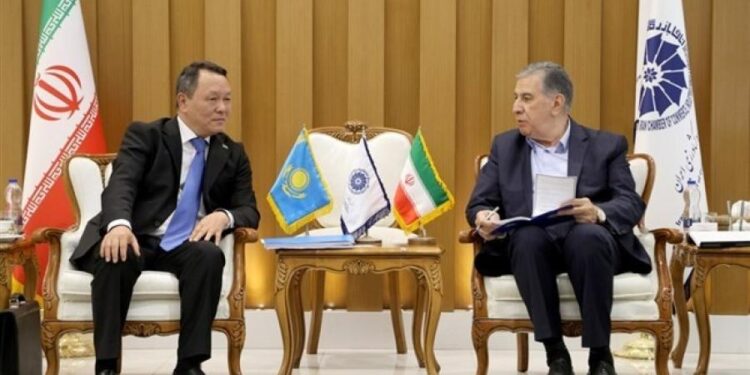Enhancing Economic Relations: The Initiative for a Collaborative Trade Committee Between Iran and Slovakia
To strengthen economic partnerships,the Iran Chamber of Commerce,Industries,Mines and Agriculture (ICCIMA) has proposed the establishment of a collaborative trade committee with Slovakia. This initiative, highlighted by the Tehran Times, reflects a growing ambition to develop trade relations between both nations in light of current global economic challenges. ICCIMA representatives believe that this committee could play a crucial role in identifying mutual opportunities, addressing trade barriers, and fostering business collaborations between Iranian and Slovak enterprises.
ICCIMA Advocates for Deeper Economic Engagement with Slovakia
The Iranian Chamber of Commerce is pushing for renewed economic ties with Slovakia through this proposed joint trade committee. The primary objective is to enhance collaboration by capitalizing on each country’s strengths, potentially leading to increased trading activities. By focusing on key sectors such as technological innovation and agricultural development, this committee aims to tackle significant areas of shared interest.
According to ICCIMA officials, the envisioned committee will serve as a platform for both countries to explore opportunities while confronting challenges within their trading relationship. Key areas of focus include:
- Identifying bilateral trading opportunities
- Facilitating investment flows
- Promoting cultural and educational exchanges
This strategic partnership holds promise not only for stimulating economic growth but also for enhancing political and cultural ties between Iran and Slovakia.
Economic Benefits of the Proposed ICCIMA-Slovakia Trade Committee
The formation of a joint trade committee offers numerous economic advantages that could revitalize bilateral commerce. By pooling resources and insights from both nations, significant benefits are expected—boosting trade volumes while broadening market access. Areas ripe for expansion include:
- Simplified Market Access: Streamlining entry points for Slovak products into Iranian markets and vice versa.
- Diversification opportunities: Exploring emerging industries such as renewable energy or advanced manufacturing technologies.
- Investment Collaboration: Encouraging strategic investments that foster innovation in both countries.
This collaboration may also lead to tailored trade agreements designed around specific industry needs—creating a more integrated economic relationship overall. Moreover, it could generate local employment opportunities while invigorating sectors like manufacturing services. To illustrate potential impacts on future trading volumes following this collaboration proposal:
| Year | Projected Trade Volume (in millions USD) | Main Industries Involved |
|---|---|---|
| 2024 | $150 million | Aerospace Manufacturing; Textiles |
| 2025 | $200 million | Facts Technology; Agriculture |
| 2026 | $250 million | Enduring Energy; Pharmaceuticals |
Strategic Actions to Improve Trade Relations Between Iran and Slovakia
A systematic approach is vital in effectively enhancing cooperation between Iran and Slovakia. Establishing an effective joint trade committee can be an essential step toward recognizing shared interests along with potential avenues for growth through actions such as:
- regular Bilateral Meetings: Engaging in discussions focused on policies aimed at improving trades & resolving any emerging issues.
The creation of pathways specifically designed towards small-to-medium enterprises (smes) from both countries can significantly amplify cross-border commerce efforts! Implementing financial incentives like grants or tax reductions would encourage SMEs’ participation within international trades! below is an overview table highlighting possible collaborative sectors:
| Sectors | Main Opportunities | ||
|---|---|---|---|
| Technology | Collaborative IT solutions development alongside software engineering projects | ||
| agriculture | Import-export activities involving agro-products plus technology sharing initiatives. | ||














